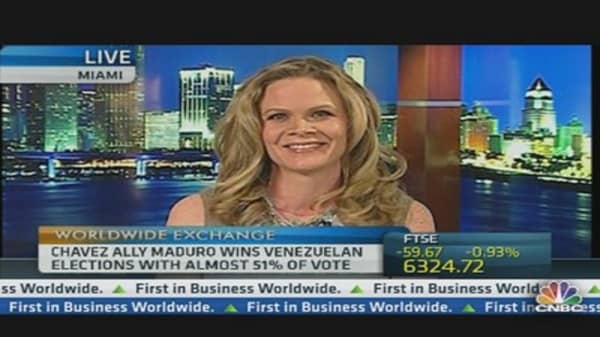After Hugo Chavez's anointed heir secured a razor-thin victor in Venezuela's presidential election on Sunday, one analyst questioned how much longer the socialist policies associated with the Chavez regime will survive.
Chavez's former vice-president and foreign minister, Nicolas Maduro, secured 50.66 percent of the vote with a 200,000 vote margin, while center-right opposition candidate Henrique Capriles won 49.07 percent. Capriles vowed not to recognize Maduro's victory and called for a recount on Sunday night, alleging irregularities at some polling stations.
Kathryn Rooney Vera, senior market strategist at Bulltick Capital, told CNBC the result boded ill for the future of Chavismo.
"The Chavista candidate had basically the unlimited resources of the state and the media and he still was only able to squeak out a win," said Vera. "The opposition really, I think, won in the sense that they remained extremely relevant. I think this opens up the door for real change in economic policy in Venezuela down the line."



